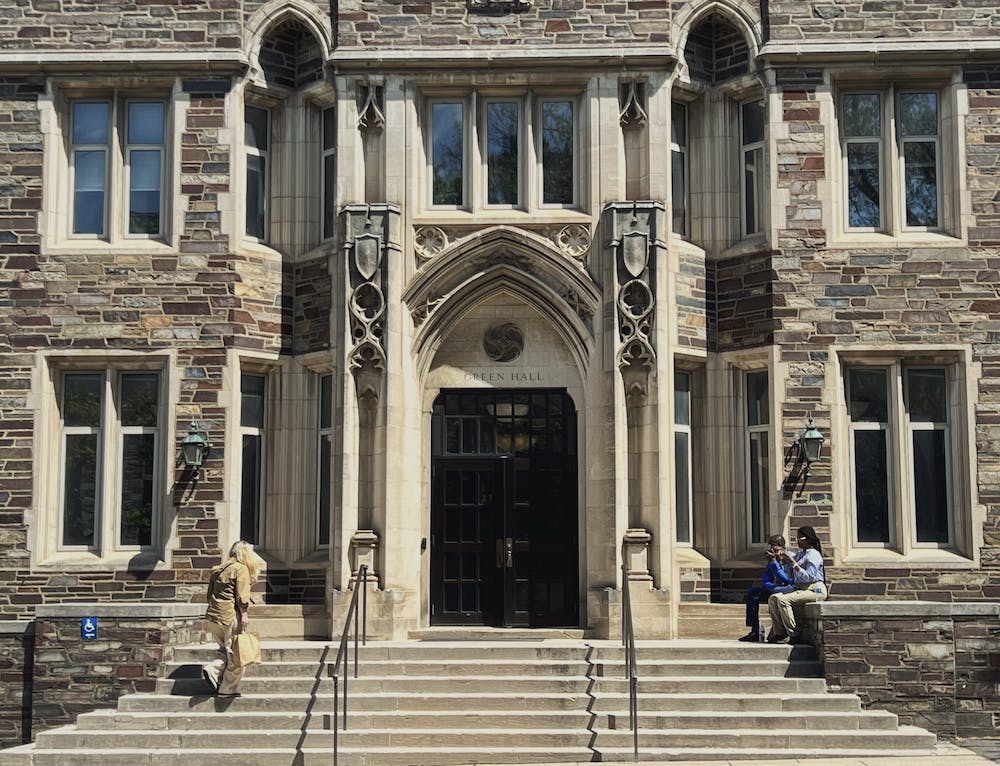In light of the right-wing Zionist attacks on Professor Satyel Larson’s plans to teach Dr. Jasbir Puar’s “The Right to Maim: Debility, Capacity, Disability” in NES 301, we, the undersigned,….


In light of the right-wing Zionist attacks on Professor Satyel Larson’s plans to teach Dr. Jasbir Puar’s “The Right to Maim: Debility, Capacity, Disability” in NES 301, we, the undersigned, stand in solidarity with Professor Larson, whose teaching and scholarship we value and admire greatly.
We are deeply troubled by the attempt to censor Professor Larson, ban Puar’s book, limit intellectual inquiry, and silence faculty-student exchange within and beyond the classroom, particularly on issues of such political, moral, and philosophical significance.
In recent days, the Center for Jewish Life (CJL), Princeton’s Hillel, has waged an intimidation campaign against Professor Larson’s free expression. On Aug. 14, Executive Director Rabbi Gil Steinlauf ’91 publicized his attempts at censorship: “We have written directly to the Chair of the Department and the course professor, asking them to explore…alternative ways to teach the course without [the book].”
Steinlauf is not alone. Other Jewish institutional leaders have tried to pressure the University to ban the book. Ronald Lauder, president of the World Jewish Congress, demanded the book not be used in class. Furthermore, he called for the “University to cancel the course in question immediately, fire its professor, Satyel Larson.” Just as disturbingly, the Israeli government wrote to President Eisgruber on Aug. 9, asking that they “act immediately to remove the book from the curriculum.”
While far-right Jewish leaders in America and Israel claim to speak for us, they do not. This latest attempt to silence educational discourse related to Israel-Palestine is part of a pattern in which the CJL aims to interfere with academic and co-curricular events, inquiry, and debate on campus.
The CJL’s suggestion that Princeton students and faculty should not study controversial texts represents an attack on the very mandate of the University, which is to create an environment in which we wrestle with and question ideas, including — it should go without saying — some of the most pressing issues of our time.
This spring, when it was convenient for the CJL to defend free speech, in order to justify hosting Ronen Shoval, “the founder of an ultranationalist Israeli group,” they did so. It is now clear, however, that the CJL’s commitment to academic freedom and expression only extends to right-wing activists and not those who are concerned with human rights violations. And this is not the first time the CJL has attempted censorship.
In addition to our outrage about this threat to academic freedom and expression, we are saddened that the CJL’s response fails to reflect the Jewish values we hold most dear. Rather than taking inspiration from the Jewish tradition of studying difficult texts and myriad interpretations in all of their complexity, the CJL’s attempt to suppress debate and censor Puar’s book does exactly the opposite.
The actions taken by the CJL, the state of Israel, and World Jewish Congress are all the more disturbing in the context of the current wave of book bans, attacks on critical race theory, and ongoing efforts to silence marginalized voices, especially those of queer and BIPOC communities. The CJL’s choice to employ these right-wing, book-banning strategies demonstrates where its true solidarity lies.
Rather than contending with the horrific fact that Israel, like other countries, engages in human rights violations — having illegally harvested the organs of both Palestinians and Israelis, which is well-documented — the CJL perpetuates a rhetoric of Jewish and Israeli exceptionalism, which is deeply problematic.
As progressive Jewish students, alumni, faculty, parents, and non-Jewish allies, we want to express our gratitude for the Princeton professors who take time and care to teach about complex, controversial issues of the utmost importance.
Just a few months ago, University President Christopher L. Eisgruber ’83 charged the graduating Class of 2023, and the University community more broadly, to “stand up and speak up together for the values of free expression and full inclusivity for people of all identities.” We now call upon him to make good on this pledge. In the face of foreign governments and affiliated entities threatening free speech on this campus, we ask that the University administration reaffirm its commitment to academic freedom and inquiry.
The full list of signatories is available here
